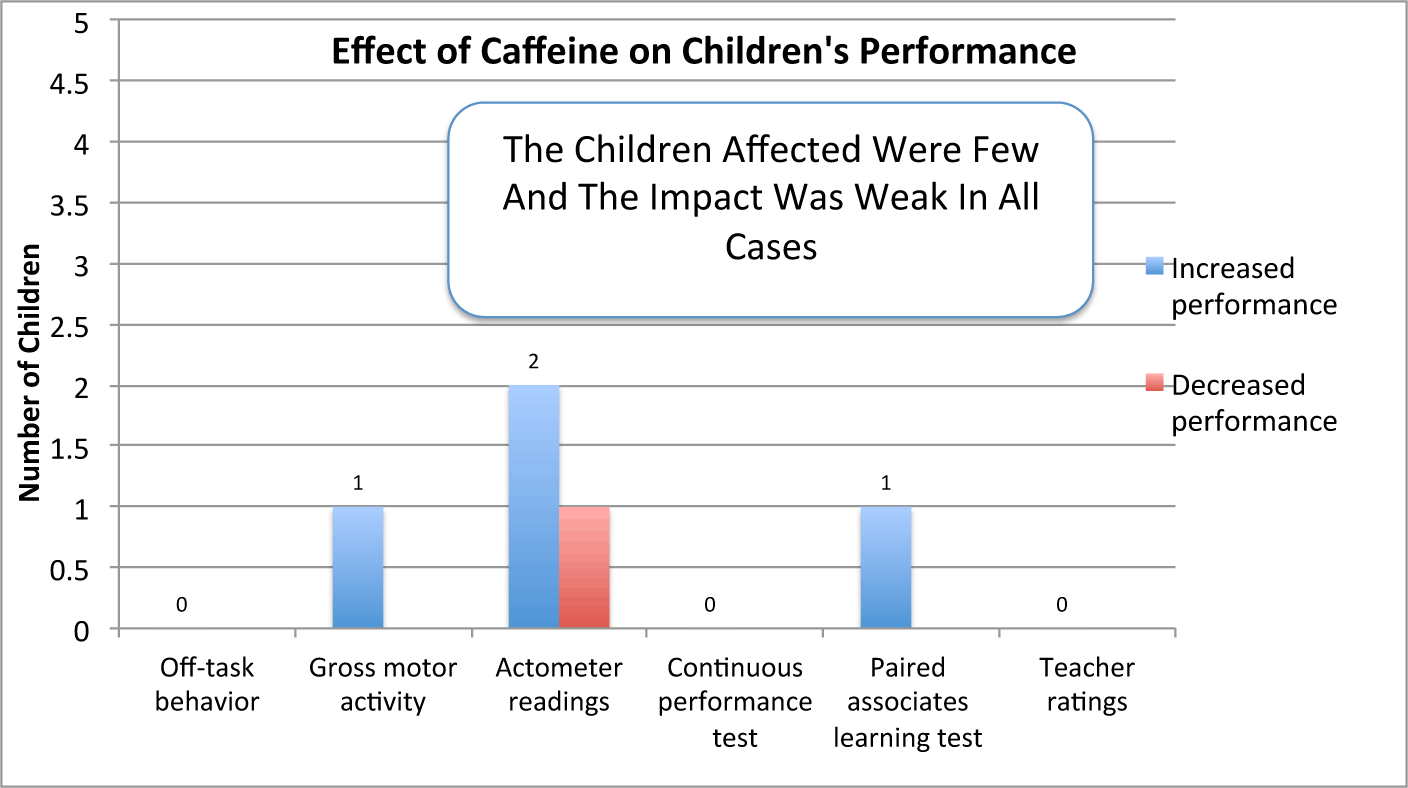Does Caffeine Affect Classroom Behavior and Student Performance?
Why is this question important? Children consume significant amounts of caffeine primarily from soft drinks. Given the potential impact caffeine may have on behavior and academic performance, it is important that educators and parents understand caffeine's effects.
See further discussion below.

Source(s): Effects of Caffeine on Classroom Behavior, Sustained Attention, and a Memory Task in Preschool Children, 1987
Result(s): Caffeine had a small and inconsistent effect on the classroom behavior of the six children studied. The relationship between caffeine intake and the following were noted:
Off-task free play: No relationship.
Off-task structured activities: No relationship for five out of six students.
Gross motor activity free play: No relationship.
Actometer readings structured activities: Mixed results. A small increase in actometer readings occurred for two students, a small decrease occurred for one student, and no effect was observed for the remaining three children.
Continuous performance test (CPT): No relationship.
Paired associates learning test (PAL): No relationship for five out of six students. For one student there appeared to be a small decrease in the PAL results.
Teacher ratings: No relationship between caffeine intake and "hyperactive" behaviors observed for any of the students.
Implication(s): The study found that caffeine may have had a small impact on children's behavior, but it had only a minimal and inconsistent influence on performance. The conclusion was that restricting caffeine intake would have no practical effect on behavior and learning in the classroom. If caffeine were to be restricted, it should be done for medical and health reasons, not to improve student performance.
Author(s): Ruth A. Baer
Publisher(s): Journal of Applied Behavior Analysis
Study Description: The study used a single-subject reversal design to investigate the effects of caffeine on the behavior of six preschool-aged children. The children's behavior was observed during baseline, a caffeinated condition, and a non-caffeinated condition. The children received a dose of 1.6 to 2.5 mg/kg of caffeine served in a sugar-free cola each day. This dosage is consistent with what children consume in real-life situations.
The study provided a study of the effects of caffeine on children and their behavior and used several objective methods for gauging the effect of caffeine on children in a school setting.
Definition(s):
- Off-task behavior: Any behavior that violates classroom rules.
- Gross motor activity: In the case of this study, the children's ability to navigate a numbered grid.
- Actometer: An instrument that records movement and activity.
- Continuous performance test: A measure of sustained attention, vigilance, and impulsiveness.
- Paired associates learning test: A test used in studies of the effects of stimulant medication and food additives.
- Teacher ratings: The study used a Connors teacher rating scale.
Citation: Baer, R. A. (1987). Effects of caffeine on classroom behavior, sustained attention, and a memory task in preschool children. Journal of Applied Behavior Analysis, 20(3):225-34.
